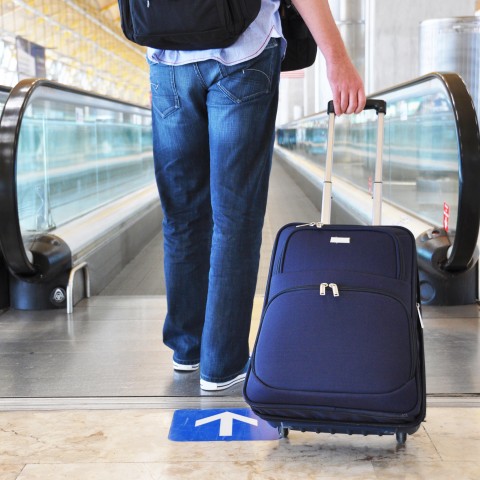
This is the most frequently asked question about the language, and yet it has no definite answer. It depends on many things, such as your native language, education, experience with languages, exposure, and motivation.
Beyond that, how long it takes to learn French depends heavily on the proficiency level you want to achieve. Do you want to…
- …reach a beginner level?
- …be able to make and understand very basic phrases related to everyday life?
- …achieve an intermediate level that would allow you to get by in simple conversations on familiar topics?
- …get to an advanced level, so you could have meaningful interactions and read or listen to virtually anything?
As you can imagine, these are very different goals with different time frames. But whatever you have in mind, there are some neat techniques you can use to learn French faster.
In this article, you’ll learn how to realistically estimate how long it will take you to learn French depending on your background and the proficiency level you have in mind. Then, we’ll see how to beat these estimates by choosing the right tools for the job.

Speed up your French studies!
 Table of Contents
Table of Contents
- The Many Factors Involved
- From Beginner to Advanced
- French Learning Tools for Every Level
- Le mot de la fin
1. The Many Factors Involved
Before we talk about how long you should expect to study in order to reach each level, there are a few factors you should keep in mind. These factors will impact how fast you can learn French and help you better estimate your total learning time.
1 – Your Native Language vs. French
Most time estimates on how long it takes to learn French are based on the assumption that your native language is English. If that’s not the case, it will clearly impact the numbers. Languages with similar roots as one’s own language are easier and quicker for that person to learn.
In any case, if you’re reading this article, it means your English level is already really strong. And this is great news! English and French both have strong Latin influences and share a lot of similarities in their vocabulary and grammar. If you know English, you already have a nice head-start on many things that would otherwise be long and difficult to learn, such as the Latin alphabet and the core structures.
And if you’re a native speaker from another Romance language such as Spanish, Portuguese, or Romanian (to name a few), it’s even better. Even before you start studying, you’ll be able to correctly guess the meaning of many complex technical words just because they look similar to their equivalents in your native language.
2 – Your Language Learning Experience
How strong are your language learning muscles?
If you already speak a foreign language or were raised in a bilingual environment, you can shave quite a bit of time off your estimate. It’s usually faster to learn a third language than it is to learn a second one.
This is because your brain is already accustomed to the gymnastics of language learning and you already know how to study, memorize vocabulary, practice, and so on. Also, the more languages you’re exposed to, the easier it gets to decipher their logic and understand the inner workings of their grammar and structures.
3 – Your Motivation
Why are you learning French?
Do you need to be proficient to work in France? Are you dating a cute French girl or a handsome French guy? Is it a hobby or a necessity? Maybe you’re just passionate about linguistics and want to learn French for the sake of it?
There are many reasons one might learn French, and your motivation will impact your level of commitment and how much time and effort you’re willing to put into it. Motivation is also what makes or breaks most French learners. You’ll have to keep your motivation alive by frequently reminding yourself why you’re studying.

Being able to buy croissants at your French bakery is good motivation!
4 – How Are You Learning?
Are you learning at school or at university? Casually studying on your own? Or already in a French-speaking country and fully immersed in the language?
Your learning method will play a key role in how fast you make progress and reach your desired French level. And of course, it depends on how much time you’re willing to invest in your studies. For better results, I’d recommend using a mix of different techniques, such as academic learning + online self-teaching, or online lessons + full immersion.
Hold that thought—we’ll talk more about learning techniques in a moment!
2. From Beginner to Advanced
According to FSI (Foreign Service Institute) and ELC (European Language Center), French is one of the most accessible languages for native English speakers. It’s even on FSI’s list of the top ten easiest languages to learn for English speakers, alongside Spanish and Italian.
They evaluate that it should take around 24 weeks (~600 hours) for the average student to reach a general professional proficiency (speaking and reading). This is the equivalent of Level 3 on FrenchPod101.com and approximately DELF B2.
Now, let’s see what that means and talk about the different levels of French.
I’ll use the DELF & DALF system, as it’s the most commonly used both academically and for French proficiency tests.
- → Speaking of which, if you’re indeed interested in the tests, we have a complete guide on how to pass the DELF / DALF exams with flying colors!
1 – Beginner Level
Let’s start at the beginning, A1.
| At this level, you know how to use and understand everyday expressions as well as simple statements about practical needs. (I want this. Where is that?) You can introduce yourself, ask questions about someone, and answer similar questions. Your conversation skills are rather basic, but if the other person is talking slowly and articulating enough, you can exchange simple information. |
At this point, you’re most likely not going to start watching French movies without subtitles, hoping it will eventually click. You need to build a foundation by learning how the language works. This means studying:
- Word order
- Present tense
- Basic conjugation
At first, you won’t need much vocabulary because you can build lots of different sentences using just a few words. For now, you’ll only need some basic nouns, verbs, and adjectives. Feel free to add some new words when you need them, but there’s no need to clutter your brain with an unnecessarily long vocabulary list.
At this level, flashcards are your best friends. You can use them to remember words as well as simple phrases, conjugated verbs, and basically anything you want.
I would recommend Anki for PC or Ankidroid on mobile phones, but a simple search for “flashcards” will give you plenty of options.
I would also recommend tackling the pronunciation from day one. To that end, it’s generally a good idea to focus on spoken French over written French.
- ★ How long to reach A1? Around 80-100 hours.

Studying online can be fun with the right tools.
2 – Intermediate Level
The term “intermediate” is a bit vague, so we’ll talk about B1. (Intermediate intermediate? Sounds good!)
| At this level, you understand the main topics of a conversation when the language is not too complicated and if you’re familiar with the topic (work, school, hobbies, yourself). When traveling in a French-speaking country, you can get by and handle daily interactions. You can also make simple sentences about what you know and like, events, and experiences. Reaching this level also means you can explain basic projects or ideas. |
There’s a lot of ground to cover between beginner (A1) and advanced beginner (A2), and even more on your way to intermediate (B1).
You’ll start learning more vocabulary, structures, and phrase patterns. For example, you’ll learn how to describe your routine or your surroundings in more detail.
This is also when you start learning new tenses and new types of words, such as conjunctions and adverbs. You’ll get a better grasp of pronouns, and learn how to make your sentences lighter and smoother using them.
Considering how long you’ll study to reach B1, you should make sure to nip your most common mistakes in the bud (especially when it comes to pronunciation), as it will be harder to fix them in the future.
If you’re studying at school or university, be sure to make the most of any help your teachers can provide. If you’re studying on your own, this would be a good time to get at least a few hours of private lessons or more affordable online coaching to solidify your knowledge and make sure you’re on the right track.
- ★ How long to reach B1? Around 350 to 400 hours.
3 – Advanced Level
Let’s finish with an advanced level, C1.
| At this level, you can understand long, complex texts and their implicit meaning. You can talk fluently without hesitating too much or searching for your words. You can now use the language in an efficient and flexible manner, for both professional and personal conversations, and build sentences in varied ways. You’re also able to express your opinion on demanding topics in a clear and articulate manner. |
This is getting really serious. Double the time, double the effort. But if you got as far as B1, nothing’s gonna stop you now. The sky’s the limit!
First, you’ll have to reach B2 and then C1 (Expert). Of course, this is not the end; as you keep learning, you’ll expand your vocabulary and improve your confidence. That said, there’s no need to aim specifically for C2, as most native speakers don’t even have this level.
You can keep learning academically or through various online frameworks, but to reach such a level of proficiency, nothing beats deep immersion in your target language. Start watching movies, reading books, and listening to French music. But most importantly, find native speakers you can interact with regularly.
At this point, living in the country or spending at least a few months in France is the best option. You’ll get a massive dose of real-life French, with new accents, slang terms, and idiomatic expressions you wouldn’t find in grammar books.
- ★ How long to reach C1? Around 850 to 900 hours.

It takes an advanced level to be comfortable with group conversations.
3. French Learning Tools for Every Level
How long it takes you to learn French really depends on how much exposure you can get and how much time and sweat you’re willing to put into it—but that’s not to say you can’t speed it up with the right tools!
Like most things in life, quality beats quantity, and learning French in a smart way will often make up for not pouring ten hours a day into your studies.
Wondering how to learn French effectively? Below are a few tools and resources you can use to make the most of your study time.
1 – Online Lessons
When it comes to learning French anywhere and anytime, online classes are your bread and butter. They’re usually fit for any level and are much more affordable than schools or private lessons.
They’re also the most flexible option, as you can adapt them to your schedule. That said, you’ll have to carefully keep track of your progress and work consistently if you want to improve.
Many websites are entirely free and allow you to work at your own pace. But this can also be a double-edged sword. Personally, when I’ve paid any kind of fixed fee or subscription, I often find myself much more dedicated to making the best out of that investment.
| You can visit FrenchPod101 to get an idea of what online lessons have to offer. Even without a paid subscription, you can access a wealth of free content, including vocabulary lists, a YouTube channel, and countless lessons for every level. Take a look at this intermediate lesson, for example. You’ll find…
The recording and lesson notes can also be downloaded for use offline, allowing you to study them later from anywhere—even when you don’t have access to the website. |
2 – Private Teachers and Schools
Private schools and teachers are the most effective resources, but also the most expensive. If you can afford to attend regular French classes or hire a private teacher (either in person or online), it will help a lot, whether for getting a reliable foundation or honing your proficiency.
In any case, however, I would recommend reading students’ feedback and reviews carefully before committing to anything. Stay away from lazy academic courses with too many students per teacher, and beware of scams.
| For French classes, Alliance Française has been on the market for a while and can be found in many countries around the globe. They provide courses for all levels and can help you pass the DELF and DALF proficiency tests. They’re also shockingly expensive, in my opinion, so I’d advise you to check your local options. You might find something perfectly fine without having to sell a kidney. |
| For private teachers, you can find them online on your local equivalent of Craigslist. The French use Leboncoin, and other countries rely on Gumtree. For online teachers, websites such as iTalki are a good resource. The trial lesson is usually rather cheap, and it will give you a good idea of whether or not you want to work with the tutor. Finally, a cheaper and more flexible option is to subscribe to the Premium PLUS option on FrenchPod101.com. This will allow you to have one-on-one interaction with your personal teacher, who can help you with your studies, send you tests and exercises, give you feedback on your writing and pronunciation, and much more. |
3 – Soft Immersion
As you become more comfortable with your French, it will become more and more important to get as much exposure to the language as possible.
It’s all about immersing yourself in French, by any means necessary.
| Are you into movies or series? Why not browse your favorite streaming platform for French content? You can safely start with great classics such as Amélie or Léon. Depending on your level, you might want to start with English subtitles, switch to French subtitles when you’re ready, and finally switch to no subs at all. You can also find French movies on YouTube but they rarely have subtitles.
|
| Are you a gamer? Then why not try to play some amazing French titles in their original version? Games such as Ubisoft’s Assassin’s Creed Unity (which takes place during the French Revolution) or Asobo’s A Plague Tale would be a great place to start. |
| Listening to French music is another great way to immerse yourself in the language. Once again, YouTube is a good place to start. Once you’ve found a song you like, perform a new search with the name of the song + “paroles” or “lyrics” and you’re good to go. |
4 – Deep Immersion
This is not going to be a big reveal, but the best way to immerse yourself in the French language and make quick progress is to jump out of your comfort zone and spend some time right in a French-speaking country where you’ll be forced to speak and listen to French on a daily basis.
Try to make local friends, preferably who don’t speak English or prefer speaking French. (They’re still really easy to find. We’re not the brightest in Europe when it comes to foreign languages.) Work locally and even try chatting with random people whenever you’re out and about.
That being said, unless your native language is very similar to French (like Spanish or Italian), this is not something I would recommend for a complete beginner.
A deep immersion will mainly be beneficial to intermediate students who want to reach a more advanced level, or C1 learners trying to sharpen their skills or broaden their linguistic horizon with idioms and slang.

To learn as fast as possible, nothing beats deep immersion.
Le mot de la fin
In this guide, you’ve learned how long it takes to learn French, the many factors involved, the different levels of proficiency, and how to learn French fast using the right tools for every situation.
Did we forget any important tool from your learning arsenal? Do you feel ready to give it a go and kick your French into top gear?
Make sure to explore FrenchPod101, as we have plenty of free resources to help you practice your grammar and learn new words. Our vocabulary lists are also a great way to review new words and learn their pronunciation.
Remember that you can also use our Premium PLUS service, MyTeacher, to get personal one-on-one coaching and practice with your private teacher. Your teacher will provide you with assignments, personalized exercises, and recorded audio samples; he or she will also review your work and help you perfect your pronunciation.
Happy learning on FrenchPod101.com!
About the Author: Born and bred in the rainy north of France, Cyril Danon has been bouncing off various jobs before he left everything behind to wander around the wonders of the World. Now, after quenching his wanderlust for the last few years, he’s eager to share his passion for languages.










